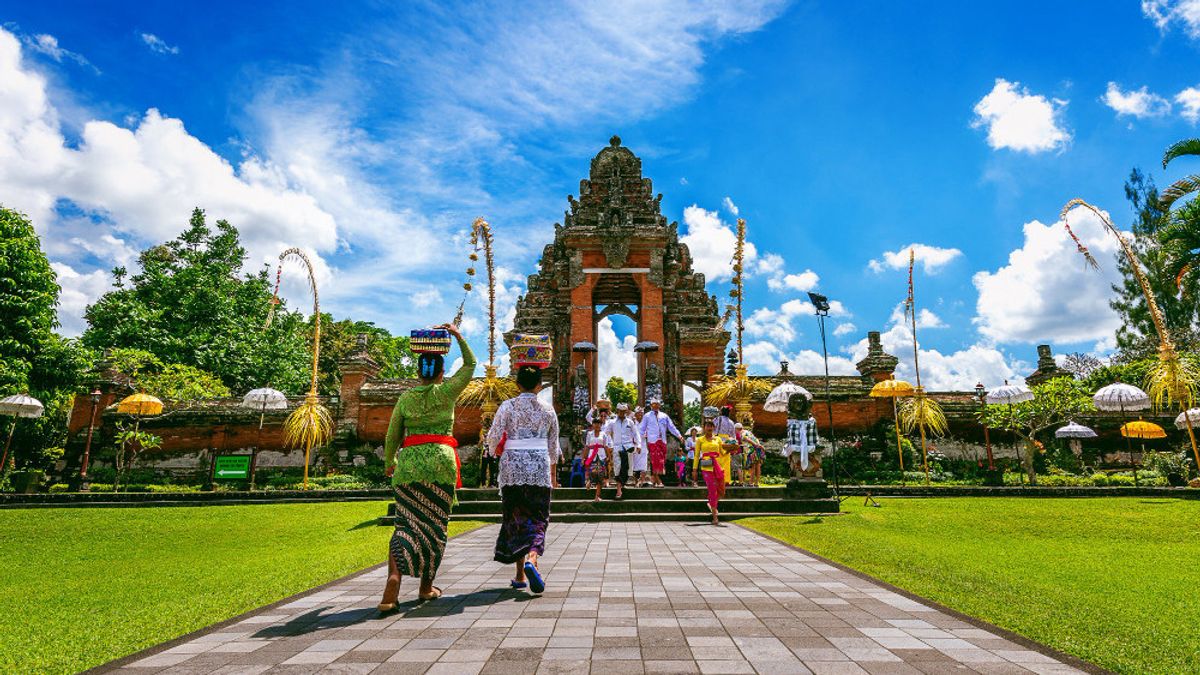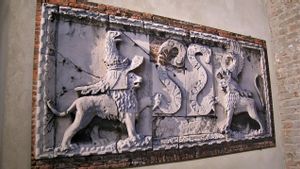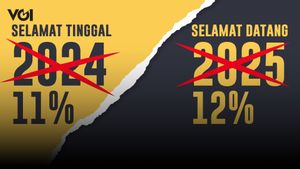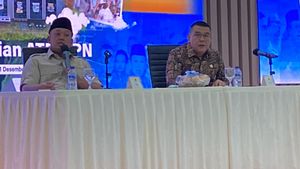YOGYAKARTA - Galungan Day 2024 falls on Wednesday 28 March. Hindus commemorate this important day to celebrate the victory of goodness / good (Dharma) against evil (adharma). Hindu people perform a series of rituals and traditions of Galungan Day.
Hindus celebrate Galungan Day lively or lively. Hindus in Bali, for example, usually decorate their homes with penjor. If you are in Bali on Galungan Day, you will find many tall and curved bamboo sticks decorated with young coconut leaves in people's homes.
Galungan Day is a moment that Hindus have been waiting for. In addition to installing penjor, there are several other Galungan Day rituals or traditions that are carried out.
Galungan Day is a day when Hindus commemorate the victory of dharma (goodness) against adharma (burus). Galungan Day is celebrated every 210 days or six months which is right on Wednesday or Buda Kliwon Dungulan. Wuku ducalan means winning, which is interpreted as the victory of humans from the temptation of three blind or time.
Galungan comes from the word galung which means war or fighting. Galungan Day is often associated with the story of war between Bhatara Indah against Mayadenawa. Bhatara Indah won the war as a symbol of dharma, while the Mayanadewa was a symbol of adharma.
The following are a number of Galungan Day traditions carried out by Hindus and their meaning explanations:
Mapped is a tradition of walking hand in hand while upholding an offering place called the bamboo keben. Mapped tradition is included in a series of Hindu prayers on Galungan Day. Hindus hold a speeded tradition by walking to temples in the local village. The contents of offerings brought are usually in the form of fruit, flowers, andjenur decorations.
Every Galungan Day celebration, Hindus will be busy installing penjor. Installation of this high bamboo dip or decoration is not only done at home, but also in various places. Penjor for Hindus is a symbol of victory and prosperity, as well as gratitude and offering to Bhatara as the meaning of Galungan Day.
The installed penjor is generally made of bamboo sticks whose ends are made curved. The long bamboo stems are then decorated with coconut or janur leaves and added with various agricultural products, such as tubers, fruits, seeds, and so on. In addition, Hindus usually also complete penjor with offerings.
Another tradition carried out by Hindus during Galungan Day is against which comes from the word Lawang or door. Hindus will parade the door to the door of a resident's house in Banjar or village. The barong is paraded around the village while being accompanied by gamelan.
Hindus interpret the barong as a mythological animal that has magical power. A large barong that is paraded in the form of a large pig with a scary face. The purpose of the tradition of fighting the barong is to expel evil spirits that disturb the calm of the village so that residents are protected from danger.
SEE ALSO:
Shock is one of the traditions carried out by Hindus during Galungan Day. Traditions in the form of food sharing activities to neighbors, be it fellow Hindus or non-Hindu as a form of tolerance between religious communities in Bali. Shocks are generally carried out before Galungan Day until the day of celebration.
Mekotek is a tradition inherited by Hindus in Munggu Village, Badung, Bali. This tradition was held by various groups of residents by combining wood into cones. This tradition is accompanied by gamelan music and residents will rotate and subscribe to music.
The term mekotek is taken from the sound of wood that competes or is beaten by each other, which reads tek tek. Mekotek is a hereditary tradition that aims to reject reinforcements that have happened to the village decades ago.
Such is the review of the Galungan Day tradition carried out by Hindus. In addition to carrying out a number of the above traditions, usually Galungan Day is also enlivened with typical foods such as glutinous tape and dodol made before the day of celebration. Also read what is the Melasti ceremony in Hinduism.
Stay up to date with the latest domestic and other overseas news on VOI. We present the latest and updated information nationally and internationally.
The English, Chinese, Japanese, Arabic, and French versions are automatically generated by the AI. So there may still be inaccuracies in translating, please always see Indonesian as our main language. (system supported by DigitalSiber.id)


















